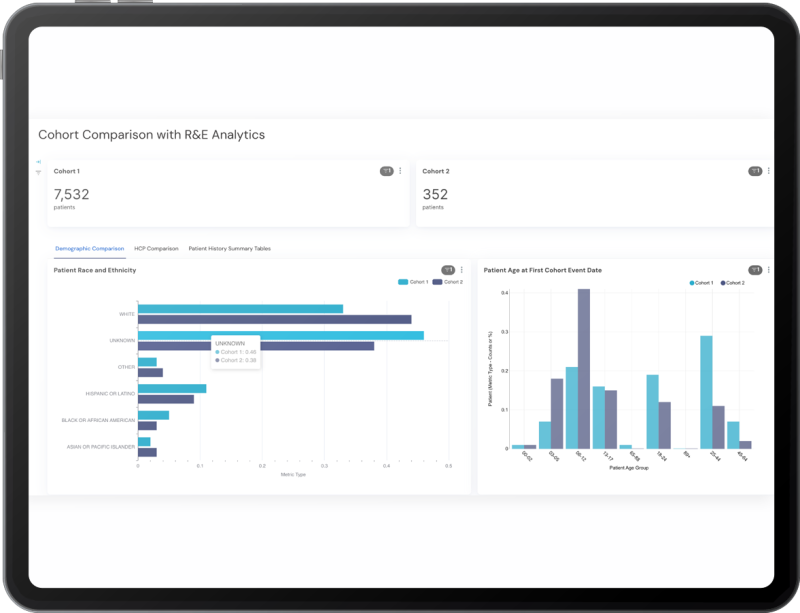Komodo Health has unveiled a new self-service application designed for health research teams with no coding experience.
MapView is the first major application debuting on overarching platform MapLab, unveiled last year to generate insights into disease trends, treatment pathways, patient populations and other complex questions. MapLab integrates Komodo’s de-identified Healthcare Map on more than 330 million patient journeys.
The new offering, MapView, is designed as a no-code, self-service application that helps users visualize complex healthcare research questions with no technical expertise needed. It includes templates tailored to a variety of use cases and allows users to upload and integrate custom data sets for further insights.

Without the resources to hire hundreds of engineers, it can be difficult for business leaders to get answers to difficult but important questions about patient populations, according to Komodo co-founder and president Web Sun. Today’s sophisticated data necessitate a new enterprisewide approach to accessing insights, he argues.
Komodo, on a mission to democratize access to data insights, is trying to reverse the “decadeslong overreliance on one-off analytics projects,” Sun told Fierce Healthcare. “We want to address that broken insight-generation workflow.”
MapView, per Sun, can power looking at complex diseases with complex referral pathways or treatment patterns across the longitudinal patient journey, arming teams with dashboards and code sets to slice and dice the data however they want. “We are meeting customers and their insights needs exactly where their capabilities and expertise reside,” Sun said.
The overarching platform, MapLab, premiered in 2023 with an AI assistant in beta intended to help engineers look up and define terminology needed to do an analysis or help them identify the right analytic template to use.
“We've always believed that AI will help propel the industry forward,” Sun said. “If our mission is to reduce disease burden … this is an opportunity for us to help users at every end of the spectrum get to better answers faster and more easily.”
Eventually, Sun said, the company hopes that insight generation in MapView will be available in chatbot form, even further streamlining analytics work. Komodo plans to fully commercialize the AI co-pilot in the second half of this year.
Though the first batch of MapView templates target life sciences use cases, a wide range of stakeholders can benefit from tapping into the application or overarching platform, Sun said. And the library of templates available will continue to grow.
Komodo recently published a research brief (PDF) on the treatment landscape for multiple sclerosis patients using MapView. They could quickly explore the sequence and timing of events along the patient journey, from diagnosis through treatment, and create patient cohort reports stratified by characteristics like gender or age, according to Sun. Such patterns can inform clinical decision-making. “This study took minutes, instead of months and millions,” Sun noted.
Additional MapLab experiences, including Komodo’s AI assistant, will launch throughout 2024.